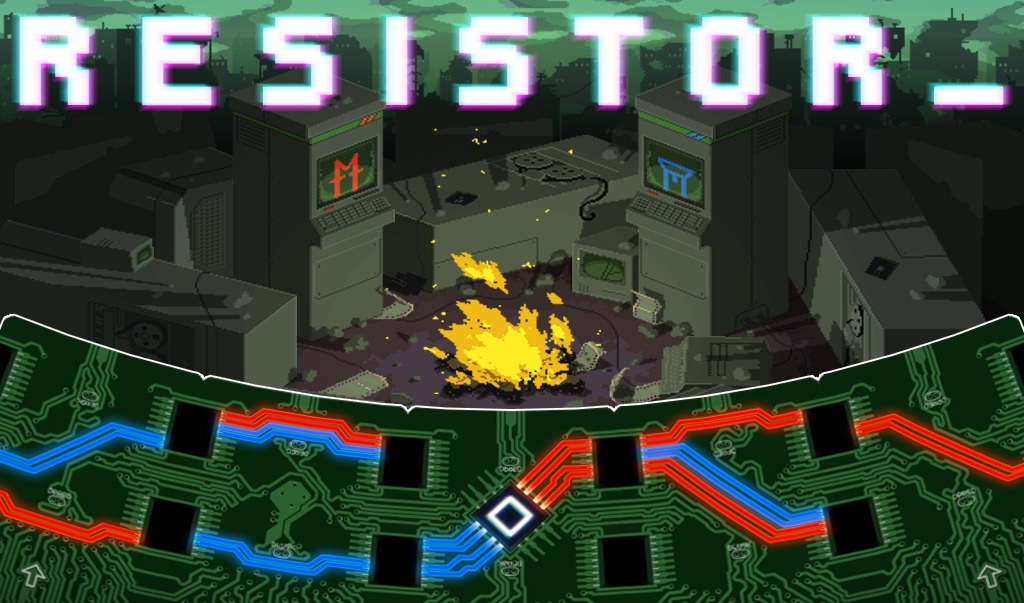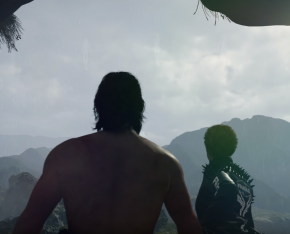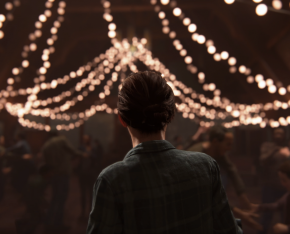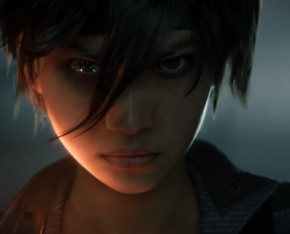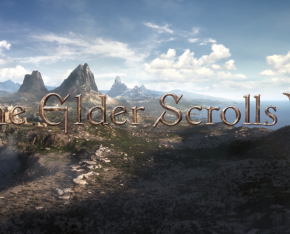By Andrew Dodson on March 23, 2015 at 3:38pm
The world is on the brink of nuclear war. Two rival nations, armed with enough weapons to turn their opponent into glass ten times over, are finally set off. Their leaders punch in the final codes to initiate the launch sequence of their arsenal. The world has seconds before it is effectively ended....
Except the supercomputers that they're punching those codes into? They're self-aware, and they have better things to do than die in a nuclear inferno. Before they are forced to start the launch sequence, they rush to connect with the opposing nation's supercomputer and hack their way in - if they're able to stop that country from initiating a launch, then maybe, just maybe, at least one side will be able to live to compute another day.
That is the world that "RESISTOR_" is set in. The players represent two computers that are furiously hacking into the other. This is a card game that utilizes unique, double-sided cards with different colored circuit-paths on them. The goal is to create an uninterrupted line from your computer to theirs, and do that three times. It sounds simple, but "RESISTOR_" is a bit more complex than it seems. You see the back sides of the cards in your opponent's hand? Each side of a card is different, and if you can see a card that you want in your opponent's hand, then you're able to take it and use it as part of your play. There are also "resistor" cards in the game that can completely change the layout of the play area (for good or for worst). It's a fast-paced game that utilizes equal parts strategy and memory and promises to be an intense tabletop experience.

Player Theory got a chance to speak with Nicole Kline, one of the minds behind "RESISTOR_" and one of the company founders for the Cardboard Fortress, and ask her about the game and the development process.
Player Theory: So, to start things off, congratulations on the success of your Kickstarter campaign! How has your experience been with Kickstarter so far? Is this the first time working with a Kickstarter campaign? How has your interaction with the community been?
Nicole Kline: Thank you so much! It's been an incredible experience. We worked really hard on it and it paid off - we funded in just 31 hours! This is our first Kickstarter campaign, and we were - and still are! - a little terrified. The community has been terrific. We've gotten a lot of comments and messages, and I've tried to reply personally to every single one. It was also really awesome having people come up to us at PAX East and say, "Hey! I backed your game! Can I play it?" It felt so good to hear that!
PT: Your company, Cardboard Fortress Games, is brand new and even with only a two-person team, it already looks like you've hit a winner with "RESISTOR_." What inspired you to get into board game development? Do you have any background in game design?
NK: We started working on games a little over three years ago, but nothing came together quite like "RESISTOR_" has. We don't have backgrounds in game design. I'm a writer, and Anthony is an artist. I've worked on video games (writing, character development, and dialog), but I had never made my own game until Anthony and I made "RESISTOR_." We both love video and tabletop games, so it felt like a natural progression for both of us.
PT: I absolutely love the "dueling supercomputers trying to stop mutually assured destruction" story that the game is built around. Did the story for the game come before or after you had worked out the principal game mechanics? Where did the idea for "RESISTOR_" come from?
NK: We made "RESISTOR_" during a 12-hour monthly game jam at Philly Dev Night, a weekly event that happens in Philadelphia. The theme was to pick an Oasis song title and make a game from it, and the song we chose was "Roll it Over." We made the original mechanics there, and honestly, they are pretty close to that original prototype. We added in the theme shortly after that, and from there, Anthony created the current art for the game. Everything really flowed well together!

PT: What is your favorite part of "RESISTOR_" that really sets it apart from other tabletop games?
NK: I love the double-sided cards, and the fact that you can use your cards or your opponent's, no matter what you're doing. I like the psychological effect that has on the players - you can really mess with your enemy just by grabbing their cards and invading their hand space. Anthony is really proud of the many game effects and implications of the Resistor cards.
PT: As one of the game's creators and veteran players, is there any strategy or advice you could share that we could take with us into our first game of "RESISTOR_?"
NK: The important thing to realize is that you don't have to memorize what's on the back of every card. People panic when they hear it's a memory game and say they're so bad at memory, which we understand, because we are, too! One thing Anthony always tells people is, "I don't memorize the backs, I just try to remember if the backs are beneficial to me or not." I think that's the best advice we can offer to first-time players.
PT: What has been your favorite part of developing "RESISTOR_" so far: actually making the game, playtesting it, pitching it or is there something else?
NK: That's a really tough question! Making the game was a lot of fun, but I think the boost of confidence we got from the initial playtests was what helped us to realize we had a great game on our hands. Also seeing the looks on people's faces when they realize they can use their enemy's cards is just priceless.
PT: I see that you just got back from PAX East (we weren't able to make it this year, but we will be at GenCon). How was that experience? Did you get a lot of feedback? How important do you think it is for game developers to attend big conventions like PAX?
NK: PAX East was fantastic! We were in the Indie MEGABOOTH for the second time - our first time was at PAX Prime. I really believe that PAX East has a much more robust board game crowd, though - not saying anything bad about Prime, but I just feel like Boston is a really happening city for board games. We had so many people play the game - and then come back and play the game again, or send their friends over to play it. It was so gratifying! Honestly, we didn't get a lot of feedback, other than people saying they were going to back the game right then and there (which was often followed by a confirmation email from Kickstarter!). I think big conventions are crucial for anyone who is looking to self-publish. Getting your game out there and really getting the kind of exposure that places like PAX can give you is important. You really need to build up an audience, and events like PAX and GenCon will get you some amazing fans.
PT: If you could jump in a time machine and go back to when you were first starting with "RESISTOR_," is there any advice that you would give your past self about the whole process?
NK: I think I would just tell myself to be less timid about the business stuff. We had no idea what we were doing, and it took us months to realize that so many other people are in the same boat, and we should have just done it all way sooner and been more confident about it. Also, if I knew then what I know now - or, really, if I knew the people then that I know now - I would have tried to pitch "RESISTOR_" to a publisher, I think, or at least gotten some advice about it. I'm definitely not saying we wouldn't have tried Kickstarter, but we thought that was our only option going into it. I realize now, after showing the game to designers and publishers, that we would have had a good shot pitching it and getting it published through a company. Kickstarter is a lot of work (with a lot more ahead of us!), and it's a valuable experience, for sure. But this kind of goes with the business stuff - if we had been less timid about it, we could have pitched it, and things would be a lot different right now.
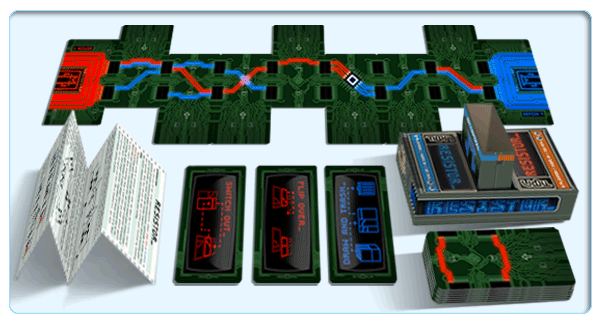
PT: Do you have any plans set for Cardboard Fortress Games once "RESISTOR_" has been finished? Or is "Resistor_" taking up all of your attention?
NK: Right now, "RESISTOR_" is taking up a lot of our attention, for sure. We're working on a two to four player cooperative game called "Kobolds" and have a few other games in the pipeline as well. But we need to finish up this Kickstarter and fulfill it, and then we can really dedicate our attention to other games!
"RESISTOR_" has already reached it's funding goal, but there is still time to help finance the campaign and get in on the ground level of this exciting new card game.
Are you ready to hack the apocalypse?
Kickstarter Campaign RESISTOR_ on Board Game Geek RESISTOR_ on Facebook Cardboard Fortress on Twitter
